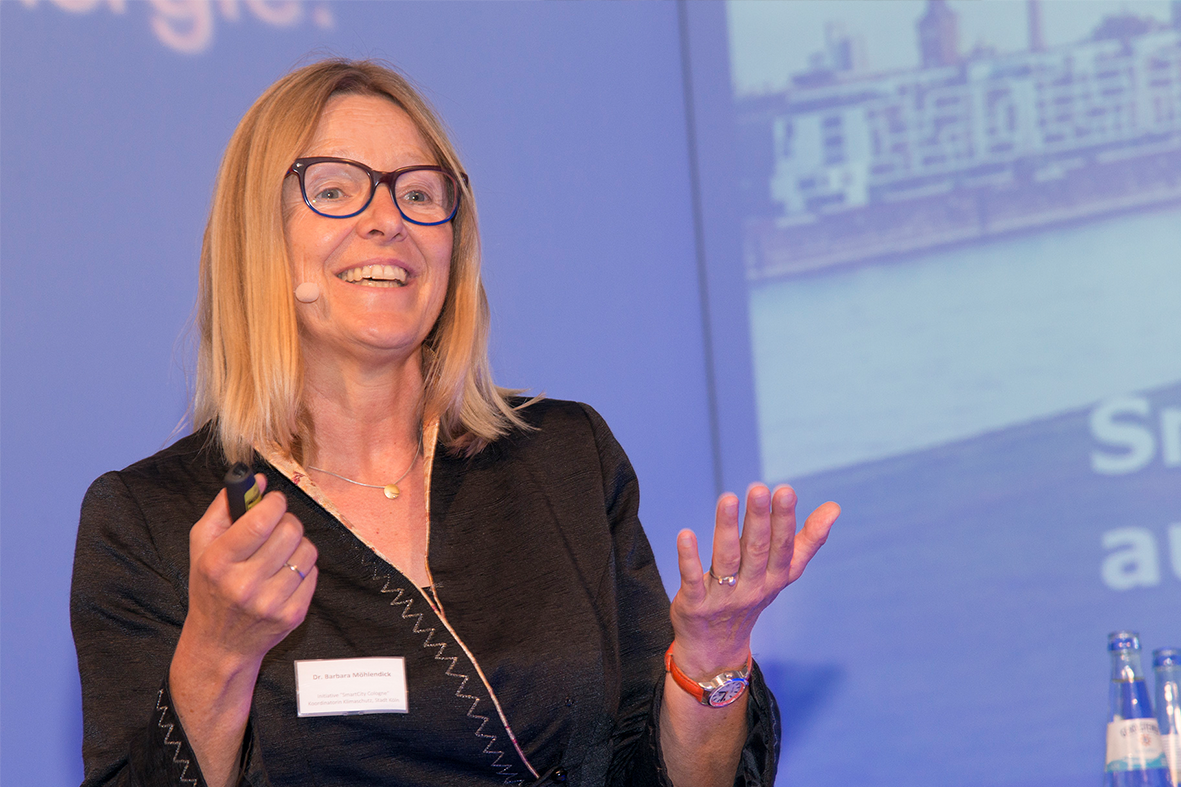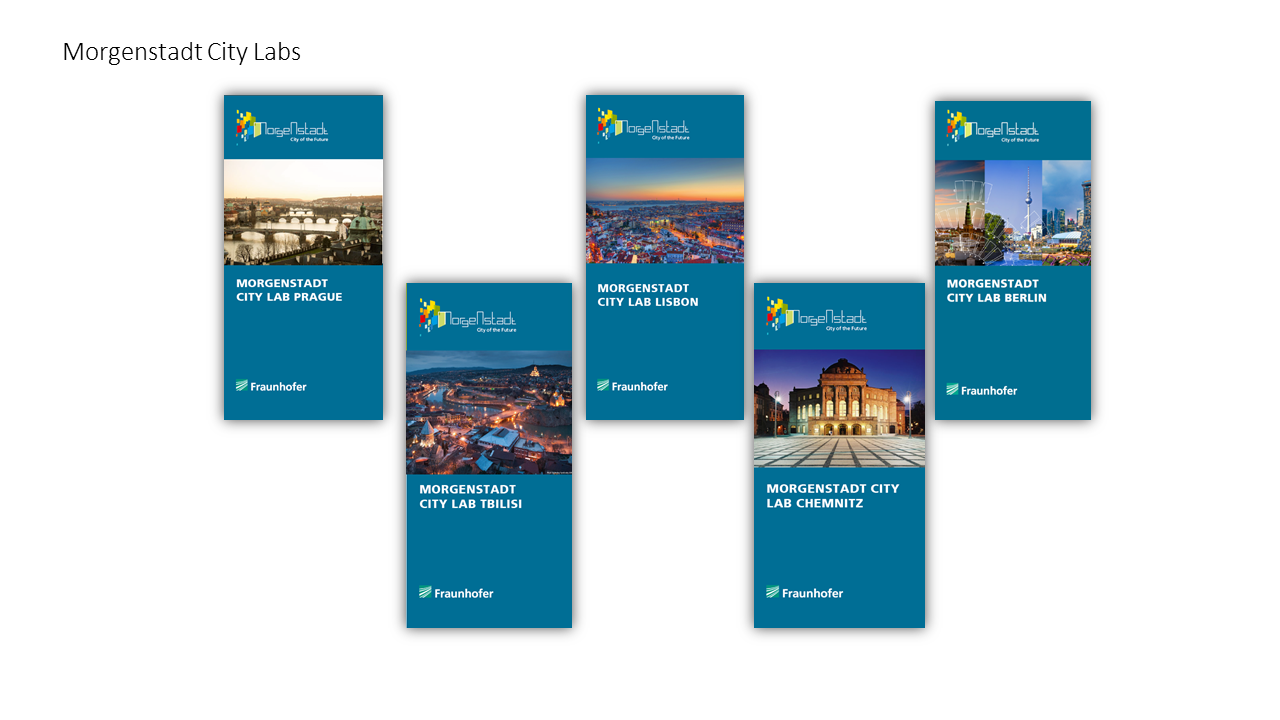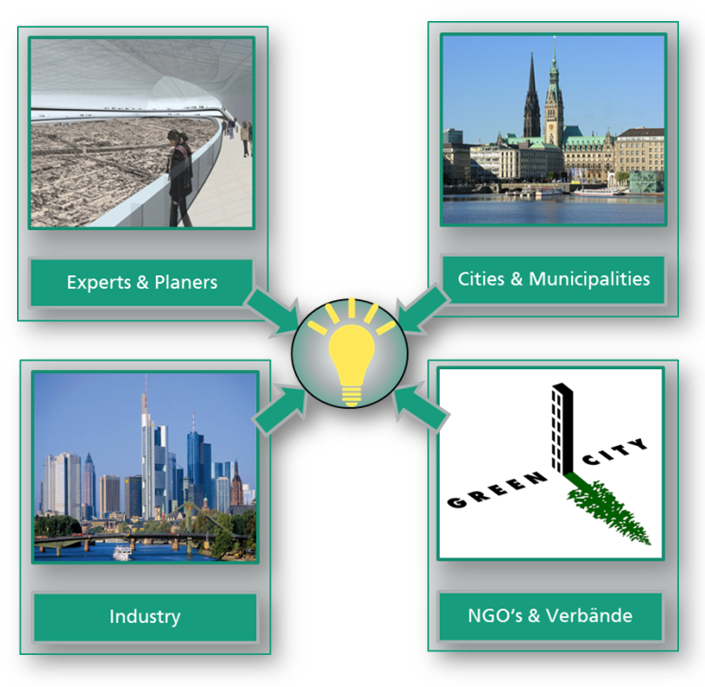
Finished Projects

Already more than 100 Million Euros for Future research
Since 2014, Morgenstadt Initiative has generated in total around 100 million euros of public funding for German and European research projects to develop and demonstrate concrete smart and sustainable solutions for urban challenges the cities face. We will continue supporting our partners in the acquisition of funds as well as in the implementation of applied research projects aiming at overcoming urban challenges.
CityLabs as Urban Laboratories
Cities and their current state of sustainability can be effectively evaluated using tools that have been developed for the analysis of urban living spaces. For this purpose, the city will be transformed into an urban laboratory, the so-called “CityLab”, within which the Fraunhofer researchers together with industry partners and local municipal administrators develop holistic concepts and concrete measures to overcome the identified challenges. The duration of the CityLab is around one year from the kick off until the presentation of the final report. Here you can take a look on the final reports of the already completed „CityLab“ projects in Prague, Tbilisi and Lisbon.
Cooperation through innovation partnerships
The transformation into a Smart City is a long-term process. Therefore, it will be supported and facilitated through the years within the framework of Innovation Partnerships. Experienced Morgenstadt experts will advise their partner cities constantly in the definition of projects, acquisition of funds as well as establishment and management of the local innovation-ecosystem. Current Innovation Partnerships with cities include Buenos Aires, Dublin, Eindhoven and Leipzig. More information on each project can be found here.
Smart City Projects
Within the Morgenstadt Initiative we have already launched some smart city projects and succeeded in several EU Smart and Sustainable Cities (SCC) calls. You can also benefit from the experience from the successful SCC projects Triangulum, Grow Smarter or Smarter Togetherproject currently being implemented in the Lighthouse and Follower Cities . Here you can find details about these smart city projects:

Toolbox:
In addition to the projects already mentioned, new tools such as the Morgenstadt City Index or the Collaboration Index were developed within the network. The first one allows cities to evaluate their overall performance on a scientific basis to detect weaknesses and to improve the cities livability. The second enables companies to evaluate their investments in the smart city market.
Voices of Morgenstadt project partners

Barbara Möhlendick Ph.D. from »Smart City Cologne«:
"In concrete terms: the city administration must want it. Then you have to found an office and make resources available for the energy suppliers and the city. Pilot projects are very important. The citizens must see that what we want to do works. One example are the energy-efficient houses: fully energy-efficient and functional inside, including the latest heating and lighting systems – of course combined with social components. This housing model is targeted for groups who will live there temporary: students, but also elderly, who may have physical disabilities. We test a concept for living that is very adaptive for changes - a kind of innovative City Lab in the city of Cologne."

